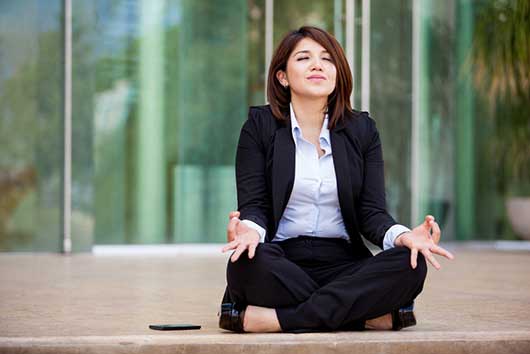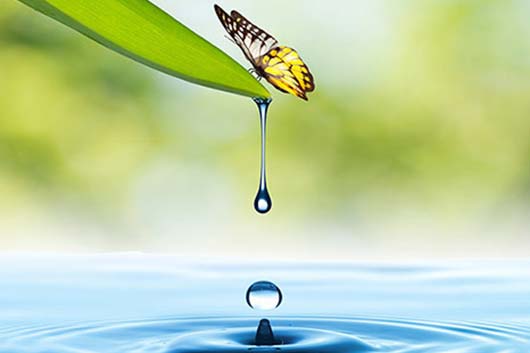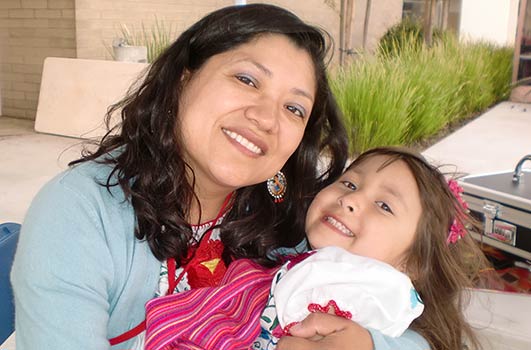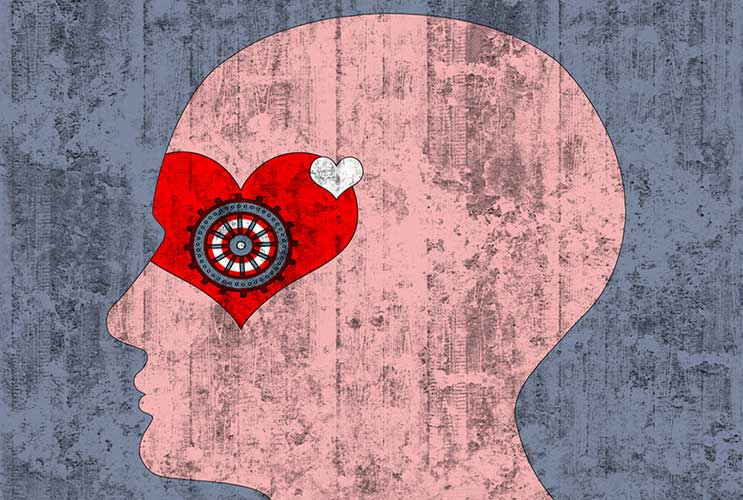Our lives are hectic, filled with to-do lists, errands, and deadlines. Personally, I can barely finish one task before I’m already thinking about the next one. The day flies by and I have hardly taken five minutes to relax and be in the moment. At night time, it doesn’t get any better: I’m kept awake by rushing thoughts of looming tasks, and wondering when I will be able to fit them into my schedule.
With all this chaos, I felt like I was reaching a breaking point. That’s when a friend suggested I start practicing mindfulness, a type of meditation on the go for those who don’t have the time or patience for traditional meditation.
Mindfulness is a state of active attention in the present moment. No matter what you are doing: the dishes, cleaning, working, or on a bus ride, when you are mindful, you are awakened to the experience of living in the present moment. You are not judging your thoughts or feelings; you’re just letting them pass through you and not hanging on to them.
Read Related: Mindfulness, My Word To Live By
HOW TO PRACTICE MINDFULNESS
Concentrate on what you are doing. Don’t allow thoughts about future events to enter your mind or stay there for long. Focus on the task at hand and breathe deeply. Try focusing on simple, everyday things to practice being in the now.
If you are in pain, allow yourself to feel it. Hold your hand to your heart and be compassionate towards yourself. Feel whatever you have to feel, even if it is painful. Don’t brush it off or judge yourself as weak. Mindfulness is about trying to see yourself objectively. Psychology Today mentions that Buddha taught that the source of suffering is our attempt to escape from our direct experience. In other words, we cause ourselves more suffering by trying to get away from pain and attempting to hang on to pleasure.
Do one thing at a time and don’t anticipate. If you’re busy concentrating on a project, don’t answer the phone or check your email. Do what you have to do in total concentration. While we can sometimes enjoy the anticipation of an event, it can cause a lot of unwanted anxiety too. Precious moments, when you think back, were those when you sat, perhaps, with a friend, had coffee and spent the afternoon chatting, lost in time. Try not thinking about what is next. That is how we should approach every moment in life, being present.
Read Related: 3 Steps to Create Inner Calm
Do things you are passionate about. Your focus will be steered away from any toxic thoughts. I have ADHD. Honestly, it is exhausting. Nevertheless, as a teacher, once I get into a classroom I am 100% present. My thoughts don’t wander off and I enjoy the experience. Once outside the classroom, the to-do list beckons me and I am again angst-ridden. Yet, the truth is that nothing on my list is so very important. I just have to translate that mindfulness I experience in the classroom to the world outside.
Be mindful of the good things in your life. Acknowledge the good things you have. There are many. Think how fortunate you are in any given area of your life. Recognize it; write it down; be grateful.
Being mindful entails showing up for our lives, and not missing anything by being distracted or by wishing things were different. If we need to make a decision or change something, we are clear-minded enough to understand what we need to do in order to fix things. When we are in this present state, we are actually more effective. Our mind is de-cluttered, the fog is lifted and we are ready to move forward!













